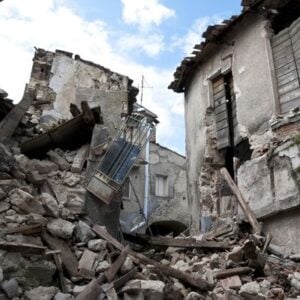West African Ministers of Health have made a historic commitment to advance the development and readiness of vaccines against Lassa fever, recognizing the disease as a major regional health threat. The pledge was formalized during high-level talks held in Abidjan on September 8, 2025, convened by the West African Health Organisation (WAHO) alongside Nigeria’s Coordinating Minister for Health and Social Welfare, Dr. Muhammad Ali Pate, and Côte d’Ivoire’s Minister of Health, Pierre N’Gou Dimba. The meeting was supported by international partners, including the Coalition for Epidemic Preparedness Innovations (CEPI) and the International AIDS Vaccine Initiative (IAVI), and resulted in a communiqué reinforcing West Africa’s leadership in combating Lassa fever.
Currently, no licensed vaccines exist for Lassa fever, although IAVI has developed the most advanced candidate, rVSVΔG-LASV-GPC, funded by CEPI and the European & Developing Countries Clinical Trials Partnership. This vaccine is undergoing Phase IIa clinical trials in Ghana, Liberia, and Nigeria to evaluate its safety and immune response, marking the most advanced study for a Lassa fever vaccine globally.
Through the communiqué, the Ministers affirmed the vaccine as a strategic health priority and a cornerstone of regional pandemic preparedness. They pledged to co-finance the vaccine’s development, strengthen clinical trial infrastructure, and coordinate regulatory, laboratory, and community engagement efforts across West Africa to facilitate late-stage research and eventual licensure. This collaborative approach aims to enhance national systems while boosting regional resilience against Lassa fever and other emerging infectious diseases.
Dr. Muhammad Ali Pate emphasized that the commitment represents more than one disease—it is a demonstration of Africa’s ability to mobilize science, align financing, and contribute decisively to global pandemic preparedness. WAHO Director General Dr. Melchior Athanase J. C. Aissi highlighted the unprecedented regional solidarity shown through co-financing and joint action. CEPI CEO Dr. Richard Hatchett and IAVI President Dr. Mark Feinberg underscored the partnership’s potential to advance an affordable and accessible Lassa fever vaccine while establishing a model for tackling neglected diseases.
The communiqué was signed by Ministers of Health or their representatives from Benin, Cabo Verde, Côte d’Ivoire, Ghana, Guinea-Bissau, Gambia, Liberia, Nigeria, Senegal, Sierra Leone, and Togo. Next steps include aligning regional capabilities for late-stage vaccine development and refining financing strategies through a working group convened by WAHO, CEPI, and IAVI.
Lassa fever affects hundreds of thousands annually in West Africa, causing nearly 4,000 deaths and $110 million in economic losses. Symptoms can range from mild headaches to severe hemorrhaging, and survivors often experience hearing loss. The threat is projected to increase due to climate change and population growth, potentially putting up to 600 million people at risk by 2050.
The 2nd Lassa Fever International Conference, held from September 8-11, 2025, under the theme “Beyond Borders: Strengthening Regional Cooperation to Combat Lassa Fever and Emerging Infectious Diseases,” brought together scientists, policymakers, public health experts, vaccine developers, and civil society to accelerate vaccine development and strengthen regional control efforts.
The rVSVΔG-LASV-GPC vaccine is based on an attenuated vesicular stomatitis virus engineered to express a Lassa virus protein critical for infection, licensed by IAVI from the Public Health Agency of Canada.







